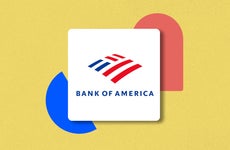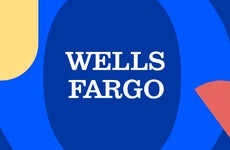Blacklisted by ChexSystems? Here’s what it is and what to do

The Bankrate promise
At Bankrate we strive to help you make smarter financial decisions. While we adhere to strict , this post may contain references to products from our partners. Here's an explanation for .
Our writers and editors used an in-house natural language generation platform to assist with portions of this article, allowing them to focus on adding information that is uniquely helpful. The article was reviewed, fact-checked and edited by our editorial staff prior to publication.
If you apply for a new checking account and your application is denied, chances are it’s because there’s a negative report of your banking history by ChexSystems.
ChexSystems is a specialty consumer reporting agency operating under the Fair Credit Reporting Act. It is similar to a credit bureau, but it tracks consumers’ deposit and debit history, rather than their ability to pay bills on time. Generally, ChexSystems reports on blemishes in banking history, such as overdrafts and unpaid fees.
“A history of overdrawn accounts will be reflected on your ChexSystems report and could stand in the way of getting a new checking account much the way a history of loan defaults would make prospective lenders unwilling to extend credit,” says Greg McBride, CFA, Bankrate chief financial analyst.
Key takeaways
- ChexSystems is a specialty consumer reporting agency that tracks consumers’ deposit and debit history, similar to a credit bureau.
- Overdraft fees are a major contributor to negative reports on ChexSystems, and can result in being denied a bank account.
- Consumers can obtain a free copy of their ChexSystems report and dispute any errors found.
How does ChexSystems work?
ChexSystems helps financial institutions assess the risk of accepting customers. The credit reporting agency collects information about consumers from banks to create a report and issues a risk score based on that information.
Banks rely on consumer disclosure reports to determine whether to grant a customer access to a bank account. These reports can warn banks about thieves looking to commit fraud, but they also include information on consumers who have made honest mistakes, such as inadvertently overdrawing funds.
Consumer reporting agencies, like ChexSystems, must follow certain regulations, such as reporting information accurately and investigating disputes by consumers in a timely manner. ChexSystems is overseen by the Consumer Financial Protection Bureau and the Federal Trade Commission.
What information banks report to ChexSystems
The CFPB website lists common reasons why consumers may have a negative consumer disclosure report:
- Unpaid negative balances (as a result of overdraft fees, for example).
- An involuntary closure of an account.
- Suspected fraudulent activity.
- Owning a joint account with someone else who had one of these problems.
Chi Chi Wu, a staff attorney at the National Consumer Law Center, says bank overdraft policies are largely to blame for many of the negative reports compiled by credit reporting agencies.
“Banks have these terrible overdraft practices where they allow people to overdraw their account, including by using their debit card when they could decline the transaction without charging a fee,” Wu says. “Then they charge this enormous fee of $35, which sometimes exceeds the amount overdrawn, and they charge that fee for every overdraft.
“It’s one of the top reasons people don’t have a bank account. In some cases, the account is closed because the overdraft fees aren’t paid. That results in a negative report on ChexSystems or Early Warning services, and that prevents the consumer from opening another bank account.”
Overdrafts in consumers’ banking history can result in serious consequences, as the consumer is often forced to use expensive financial alternatives to handle routine transactions, such as nonbank check cashing.
When someone doesn’t have access to a bank account, they’re considered unbanked. The Federal Reserve’s 2022 report on the economic well-being of U.S. households found that 6 percent of U.S. adults were unbanked. The number is higher for certain demographics, particularly low-income adults and Black and Hispanic adults. The report also found that overdraft fees are twice as likely to hit low-income adults than those making $100,000 a year.
Are credit reports also part of the review process?
ChexSystems reviews banking history, not credit history. Information in a ChexSystems consumer file can include debit history, checking account closures and check order placements.
There are three credit bureaus that supply credit reports, and the information stored by the credit bureaus is separate from ChexSystems. In other words, bad credit doesn’t necessarily affect your ability to open a bank account. But good credit also won’t help you get approved for a bank account if ChexSystems reports a negative banking history.
How to get a copy of your ChexSystems report
You can get a copy of your consumer disclosure report either online or by mail by completing a form on ChexSystems’ website.
“You are entitled to a free annual report,” Wu says. “When banks use the consumer reporting agency to deny you a bank account, the bank is required to send you an adverse action notice.”
ChexSystems must also provide consumers with a free report if they receive an adverse action notice, which gives them an opportunity to look for errors.
“If you do find issues on your report, make sure everything is accurate, just as you would with a credit report, and dispute anything that is inaccurate,” Bankrate’s McBride says.
Errors can be disputed on ChexSystems’ website, by mail or by fax.
To access your report, you will be required to divulge your Social Security and driver’s license numbers, as well as other personal identifying information. ChexSystems says that all personal information transmitted over the internet is encrypted to protect privacy.
I’ve been denied. Can I get a bank account?
If you’ve been blacklisted by ChexSystems, you still have options.
“Some banks and credit unions offer second-chance checking accounts, designed to help someone that has had previous missteps get back on the right track in managing their account,” McBride says.
Second-chance checking accounts may involve a monthly fee, a minimum balance requirement or both, but it gives consumers the opportunity to show that the account can be managed responsibly.
Some financial institutions offer other low-risk accounts that you might qualify for, such as safe checking accounts that don’t offer checks but provide a debit card.
“Safe bank accounts could be another option,” NCLC’s Wu says. “The main feature of safe bank accounts is that they are low cost, avoid overdrafts and do not charge overdraft fees.”
How long do you stay on ChexSystems?
According to ChexSystems, records of consumer reports are generally kept for five years from the report date, but consumers can request removal of a report earlier than five years if it is out-of-date or incorrect by submitting a dispute. ChexSystems usually takes 30 days to investigate a dispute, after which it may remove your report.
Bottom line
Banks and credit unions use information provided by ChexSystems to determine the risk level of a consumer. It’s important to be aware that your banking history of the last five years is stored by ChexSystems — if you’re not approved for a deposit account, it’s likely because of something in the ChexSystems report, like an involuntary checking account closure.
Look out for errors in ChexSystems reports and dispute them, so that incorrect information won’t affect your ability to open an account. If you’ve been blacklisted by ChexSystems for a negative banking history, there are second-chance or safe bank account options available.
–Bankrate’s René Bennett contributed to this article.
Related Articles



